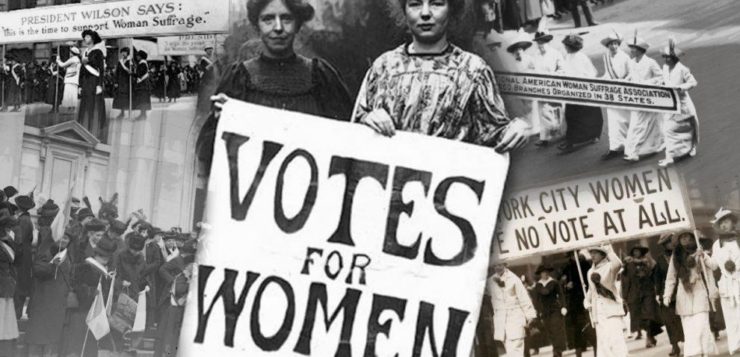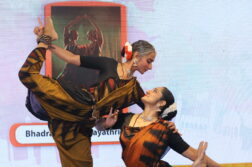Broken Moral compass
Universal suffrage may not yet be universal across the world but any idea challenging or opposing it, shall, without the slightest doubt, be uproariously decried, not by the women organizations or activists but universally, or almost. India on her freedom was fortunate that such a right for women to vote was enshrined in the Constitution and has been scrupulously practiced, without opposition or reservation. But most countries in the world had to struggle to realize this right that seems so naturally available to us. Even Britain, whose legacy is writ large on and has deeply impacted every institution of consequence in our country, has a record of long, sustained, and often bitter struggle to get it for her women. And one person whose determined and untiring struggle could make it possible was born this date 163 years ago.
The Radical Thinker
Emmeline Pankhurst was born Emmeline Goulden, on July 14 in 1858 in Manchester, England in a family of radical thinkers. She was a militant champion of woman suffrage whose 40-year long and often frustrating campaign achieved complete success, ironically in the year of her death. She died in the year 1928 on June 14 at the age of 69. It was the same year when British women obtained full equality in the voting franchise, but only a few months after her death.
In 1879 Emmeline Goulden married Richard Marsden Pankhurst, lawyer, a friend of John Stuart Mill, and author of the first woman suffrage bill in Great Britain (late 1860s) and of the Married Women’s Property Acts (1870, 1882), which allowed women to keep earnings or property acquired before and after marriage. Her husband had a deep impact on her thinking and significantly shaped and refined her approach to the causes she took to heart. His death in 1898 causing her great stress and disorientation as she lost her strongest pillar of support.
Her first foray into organized protests was through the Women’s Franchise League, which she formed in 1889. Her first major success came when she secured for married women the right to vote in elections to local offices (not to the House of Commons) in 1894. From 1895 she held a succession of municipal offices in Manchester, but her energies were increasingly in demand by the Women’s Social and Political Union (WSPU), which she founded in 1903 in Manchester. The union first attracted wide attention on October 13, 1905, when two of its members, Christabel Pankhurst (her own daughter) and Annie Kenney, thrown out of a Liberal Party meeting for demanding a statement about votes for women, were arrested in the street for a technical assault on the police and, after refusing to pay fines, were sent to prison. WSPS gained much notoriety for its activities and its members were the first to be christened ‘suffragettes’. Such was the underlying passion of their conviction that in 1913, WSPU member Emily Davison was killed when she threw herself under the king’s horse at the Derby as a protest at the government’s continued failure to grant women the right to vote. British politicians, the press, and the public were astonished by the demonstrations, window-smashing, arson, and hunger strikes of the suffragettes. It was then that Emmeline’s description of broken window panes as “The argument of the broken window pane is the most valuable argument in modern politics.” caught the public fancy.
The Maverick
She was a maverick, a path-breaker, a rebel, and a strong-willed and pugnacious personality, who, once committed to a cause, will spare no effort and brook no opposition. She used public demonstrations and acts of militancy to tip public opinion in favor of equal suffrage. She allowed the movement to turn militant and justified it in the following words,
“The condition of our sex is so deplorable that it is our duty to break the law in order to call attention to the reasons why we do.”
She did not mind going to prison. In fact, she relished the prospect. Between 1908 and 1909 Pankhurst was jailed three times, once for issuing a leaflet calling on the people to “rush the House of Commons.” From July 1912, the WSPU turned to extreme militancy, mainly in the form of arson directed by Christabel, her equally committed daughter from Paris, where she had gone to avoid arrest for conspiracy.
Pankhurst herself was imprisoned, and, under the Prisoners (Temporary Discharge for Ill-Health) Act of 1913, also derogatorily called the “Cat and Mouse Act”, by which hunger-striking prisoners could be freed for a time and then re-incarcerated upon regaining their health to some extent. She was released and rearrested 12 times within a year, serving a total of about 30 days. She was not a great admirer of the judiciary’s role in the dispensation of justice and a quote that ‘Justice and judgment lie often a world apart’ is famously attributed to her.
With the outbreak of World War I in 1914, the suffrage campaign was called off, and the government released all suffragist prisoners.
Pankhurst’s autobiography,’ My Own Story’, appeared in 1914.
During the war, Pankhurst, visited the United States, Canada, and Russia to encourage the industrial mobilization of women. She lived in the United States, Canada, and Bermuda for several years after the war. In 1926, upon returning to England, she was chosen Conservative candidate for an east London constituency, but her health failed before she could be elected.
In her own lifetime, dividends on her valiant, heroic, and determined efforts began to materialize. In 1918, the Representation of the People Act gave voting rights to women over 30. Emmeline died on 14 June 1928. The Representation of the People Act of 1928, establishing voting equality for men and women(at 21) was passed a few weeks after her death. She must be a happy, contented soul with a gratifying, spontaneous, and generous smile on her otherwise tense and terse clipped face, as she awaited her tryst with the Lord.
The Activist
That Pankhurst as a leading British women’s rights activist, led the movement to win the right for women to vote, is well recognized. But what is her legacy and what must the leaders of women’s movements need to imbibe and implant within their ongoing struggles. Obviously, the contours of challenge and the nature of issues have undergone a transformation, and so have the strategies of protest. A major upshot of securing legal rights for women is to recognize the dichotomy and binary of ‘rich and resourceful’ and ‘poor and resource less’, that has come to divide and stratify the women’s universe with the same pernicious and pervading effect that plagues the society in general. Another formidable challenge is to understand the discrimination and exploitation of women by women themselves.
Emmeline thrust denial of voting rights to British women into the public consciousness. She channelized the public discourse by sheer dint of her conviction and commitment. She believed in ‘deeds and not words’, which so eloquently describes and justifies her often controversial strategies to draw public attention but caused serious concern to authorities. She, singlehandedly, brought the issue of denial of equal voting rights to women to the political fore in an era that was seized with, as most then believed, far weightier and graver challenges.
God is a woman
For her, God was a woman, as she will often say,” Trust in God – She will provide.”
Women have often been neglected as major contributors to the history of the world either through commission or distortion. It’s a delight for us to have taken on the challenge to unearth these overlooked gems and keep relevant the stories of amazing women in history.
The author was the former Information and Broadcasting Secretary, GOI. Mr. Uday Kumar Varma, serves as an esteemed jury member on the SABERA The Social and Business Enterprise Responsible Awards 2021 Jury Board.
You may also like to read our article on Margaret Thatcher





